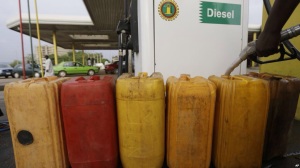 Nigeria produces vast amounts of oil. But the country has few functioning refineries, leaving Nigeria dependent on imports to fill up gas tanks across the country.
Nigeria produces vast amounts of oil. But the country has few functioning refineries, leaving Nigeria dependent on imports to fill up gas tanks across the country.
It is a paradox of Nigeria: the country produces more crude than anywhere else in Africa. But it depends on imported gasoline and diesel, subsidized by the government, to keep the lights on and cars running across the country.
The new government of President Muhammadu Buhari has said it will get Nigeria’s four refineries back up and running. But a spokesman for the petroleum marketers union in the northern city of Kaduna, Alhaji Sani Salsabil, said his members had to drive hundreds of miles to find gasoline — even though they were based in the same city as one of the refineries.
“Since the Kaduna refinery in particular is not functioning, we have to go down to the south, either Lagos, Port Harcourt and what have you, to source for the fuel,” he said.
Nigeria’s reliance on imported fuel leaves it vulnerable to supply disruptions, such as the one that happened in May, when a dispute between fuel importers and the government led to a nationwide shortage of gasoline.
The government’s subsidy program, which keeps the price at the pump stable, has long been seen as riddled with graft.
The managing director of the Kaduna refinery, Saidu Mohammed, said two other issues troubled the refinery: maintenance and insecurity. The refinery can not run because the state oil company often has trouble affording repairs. When it can run, it finds its supply of oil from the southern city of Warri disrupted by pipeline thieves.
“The moment we start pumping from Warri, they are waiting to start tapping,” said Mohammed.
Mohammed said the refinery was undergoing repairs, and once it got enough oil, it would start processing again. But Financial Derivatives Company CEO Bismarck Rewane said the problems with the refineries showed it may be time for government to get out of the business of processing.
“Deregulate the industry, and allow for new investment. Privatize and sell them out as they are,” he said.
President Buhari is expected to eventually unveil proposed reforms to the oil sector.







